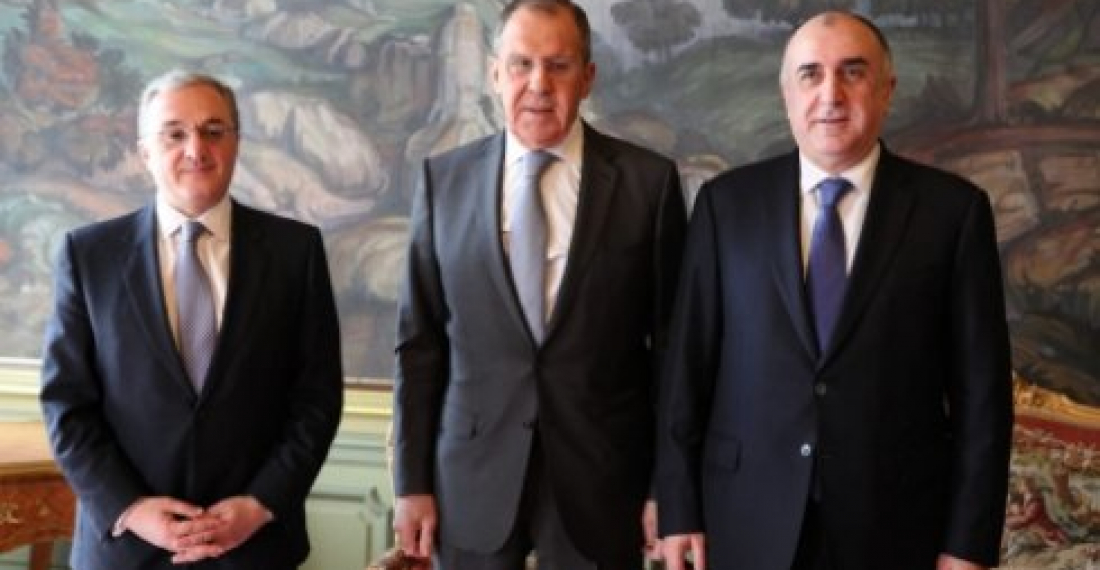Russian media have been giving a positive spin to the meeting of the Foreign Ministers of Armenia and Azerbaijan held in Moscow on Monday (15 April) under the auspices of Russian Foreign Minister Sergei Lavrov and the co-chair of the OSCE Minsk process.
The influential Moscow paper, Kommersant wrote on Tuesday, that "for the first time in a long while, there has been a positive shift towards resolving the Nagorno-Karabakh issue. Azerbaijani and Armenian top diplomats Elmar Mammadyarov and Zohrab Mnatsakanyan held a meeting in Moscow, which also involved Russian Foreign Minister Sergey Lavrov and the co-chairs of the OSCE Minsk Group, and agreed to give families access to prisoners and boost exchanges in the field of media", Kommersant writes.
"The meeting took place against a rather somber background. An Azerbaijan-Armenia summit, sponsored by the OSCE Minsk Group, was held in Vienna two weeks ago and an impasse in the talks became quite clear. Tough talk from both parties followed the summit. However, both sides managed to achieve some positive changes in Moscow. Following three-hour talks, the foreign ministers of Azerbaijan and Armenia agreed to ensure stability along the line of contact "during the farming season" and "to take mutual measures to provide families with access to prisoners." This issue is important for both parties. A source in the Armenian Foreign Ministry indicated that both Armenia and the Nagorno-Karabakh Republic were ready to allow families to meet with Azerbaijani prisoners. Mutual visits by media workers were also discussed. When asked by Kommersant if Baku was ready to receive Armenian journalists, Foreign Ministry Spokesperson Leila Abdullayeva said yes", according to Kommersant.
source: commonspace.eu
photo: The Foreign Ministers of Armenia and Azerbaijan met the Russian Foreign Minister in Moscow on 15 April 2019.






